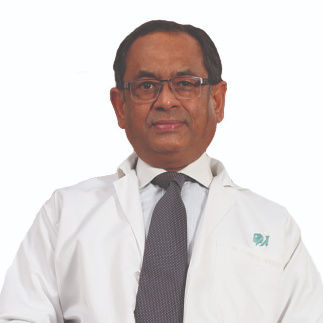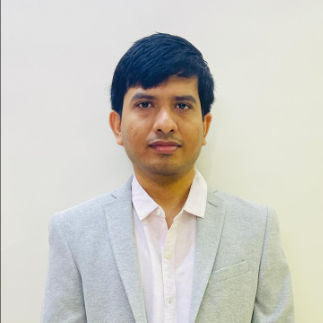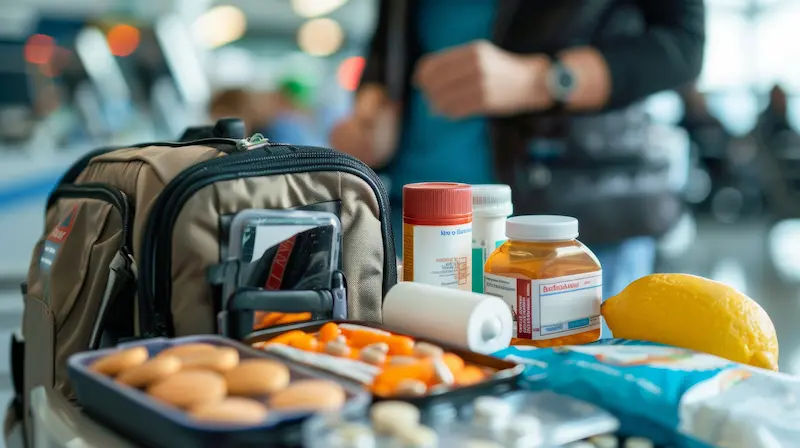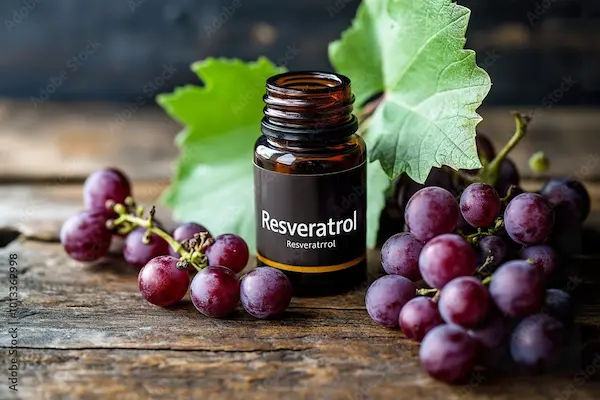Brain Stroke Symptoms, Treatments, and Risk Factors
Know about the brain stroke symptoms, treatment options, risk factors and how to reduce the effects of brain stroke.


Introduction
A brain stroke is a serious medical condition that occurs when the blood supply to part of the brain is interrupted or reduced, depriving brain tissue of oxygen and nutrients. Within minutes, brain cells begin to die, making stroke a medical emergency that requires immediate attention. Understanding the symptoms, treatments, and risk factors can help in early detection and prevention.
What is a Brain Stroke?
A stroke happens when there is a sudden disruption in blood flow to the brain. This can occur in two main ways:
1. Ischemic Stroke – Caused by a blockage (usually a blood clot) in an artery supplying blood to the brain. This is the most common type, accounting for about 87% of all strokes.
2. Hemorrhagic Stroke – Caused by a ruptured blood vessel leading to bleeding in or around the brain.
Both types can cause severe brain damage, disability, or even death if not treated promptly.
Consult a Neurologist for Personalised Advice
Recognising the Symptoms of a Stroke (FAST Method)
Time is critical when dealing with a stroke. The sooner treatment is given, the better the chances of recovery. Remember the FAST acronym to identify stroke symptoms:
• Face drooping – Does one side of the face droop when smiling?
• Arm weakness – Is one arm weak or numb when raised?
• Speech difficulty – Is speech slurred or hard to understand?
• Time to call emergency – If any of these signs appear, call for help immediately.
Other possible symptoms include:
• Sudden confusion or trouble understanding speech
• Sudden severe headache with no known cause
• Trouble seeing in one or both eyes
• Loss of balance or coordination
If you or someone around you experiences these symptoms, do not wait—seek emergency medical care right away.
Risk Factors for Stroke
Some risk factors are beyond our control, while others can be managed with lifestyle changes and medical care.
Uncontrollable Risk Factors:
It includes:
• Age – Risk increases after age 55.
• Gender – Men have a higher risk, but women are more likely to die from stroke.
• Family history – A family history of stroke increases risk.
• Previous stroke or TIA (mini-stroke) – Having had one increases the chance of another.
Controllable Risk Factors:
It includes:
• High blood pressure (Hypertension) is the leading cause of stroke.
• Diabetes – Poorly controlled blood sugar damages blood vessels.
• High cholesterol – Leads to artery blockages.
• Smoking – Damages blood vessels and increases clot risk.
• Obesity & physical inactivity contribute to other stroke risks.
• Excessive alcohol & unhealthy diet – High salt, fat, and processed foods increase risk.
Treatment Options for Stroke
The treatment depends on the type of stroke:
1. Ischemic Stroke Treatment
• Clot-busting drugs (tPA) – Must be given within 4.5 hours of symptom onset to dissolve clots.
• Mechanical Thrombectomy – A procedure to remove large clots from blocked arteries.
2. Hemorrhagic Stroke Treatment
• Surgery – To repair ruptured blood vessels or relieve pressure in the brain.
• Medications – To control bleeding and reduce swelling.
Rehabilitation After Stroke
Recovery varies, but rehabilitation helps regain lost functions. This may include:
• Physical therapy – Improves movement and strength.
• Speech therapy – Helps with communication and swallowing.
• Occupational therapy – Assists in daily activities like dressing and eating.
How to Reduce Your Risk of Stroke?
Preventing a stroke is possible with healthy habits:
• Control blood pressure – Monitor regularly and take prescribed medications.
• Manage diabetes & cholesterol – Keep levels in check with diet and medication.
• Quit smoking – Seek help if needed to stop smoking.
• Exercise regularly – Aim for at least 30 minutes of moderate activity daily.
• Eat a balanced diet – Focus on fruits, vegetables, whole grains, and lean proteins.
• Limit alcohol – Stick to moderate drinking (1 drink/day for women, 2 for men).
• Maintain a healthy weight – Obesity increases stroke risk.
When to Seek Help?
If you or a loved one experiences stroke symptoms, act FAST and call emergency services immediately. Early treatment can save lives and reduce long-term disability.
For those at high risk, regular check-ups with a neurologist or cardiologist can help monitor and manage conditions like hypertension, diabetes, and heart disease.
Final Thoughts
A stroke is a life-threatening emergency, but recognising the signs and acting quickly can improve outcomes. By understanding the risk factors and making healthy lifestyle choices, you can significantly lower your chances of experiencing a stroke.
Consult a Neurologist for Personalised Advice
Consult a Neurologist for Personalised Advice

Dr Debnath Dwaipayan
Neurosurgeon
9 Years • MBBS, MS(Gen. Surgery), DrNB (Neurosurgery)
Delhi
Apollo Hospitals Indraprastha, Delhi

Dr. Uddalak Chakraborty
Neurologist
8 Years • MBBS, MD(GENL.MED.),DM(NEUROLOGY)
Kolkata
MCR SUPER SPECIALITY POLY CLINIC & PATHOLOGY, Kolkata

Dr. Ganeshgouda Majigoudra
Neurologist
10 Years • MBBS, MD ( GENERAL MEDICINE) DM (NEUROLOGY)
Bengaluru
Apollo Clinic, JP nagar, Bengaluru

Dr. Rajendra Prasad
Spine Surgeon
36 Years • MBBS. FRCS (Glas) U.K FRCS (Neurosurgery) Intercollegiate Specialty Board in Neurosurgery (U.K). Fellowship in Spine Surgery, Stanmore, London U.K. Specialist Registration in Neurosurgery with General Medical Council. U.K
Delhi
Apollo Hospitals Indraprastha, Delhi

Dr. Sanket Patel
Neurologist
4 Years • MBBS, DNB Medicine, DrNB Neurolgy
Ahmedabad
Apollo Hospitals - Gandhinagar, Ahmedabad, Ahmedabad
Consult a Neurologist for Personalised Advice

Dr Debnath Dwaipayan
Neurosurgeon
9 Years • MBBS, MS(Gen. Surgery), DrNB (Neurosurgery)
Delhi
Apollo Hospitals Indraprastha, Delhi

Dr. Uddalak Chakraborty
Neurologist
8 Years • MBBS, MD(GENL.MED.),DM(NEUROLOGY)
Kolkata
MCR SUPER SPECIALITY POLY CLINIC & PATHOLOGY, Kolkata

Dr. Ganeshgouda Majigoudra
Neurologist
10 Years • MBBS, MD ( GENERAL MEDICINE) DM (NEUROLOGY)
Bengaluru
Apollo Clinic, JP nagar, Bengaluru

Dr. Rajendra Prasad
Spine Surgeon
36 Years • MBBS. FRCS (Glas) U.K FRCS (Neurosurgery) Intercollegiate Specialty Board in Neurosurgery (U.K). Fellowship in Spine Surgery, Stanmore, London U.K. Specialist Registration in Neurosurgery with General Medical Council. U.K
Delhi
Apollo Hospitals Indraprastha, Delhi

Dr. Sanket Patel
Neurologist
4 Years • MBBS, DNB Medicine, DrNB Neurolgy
Ahmedabad
Apollo Hospitals - Gandhinagar, Ahmedabad, Ahmedabad




